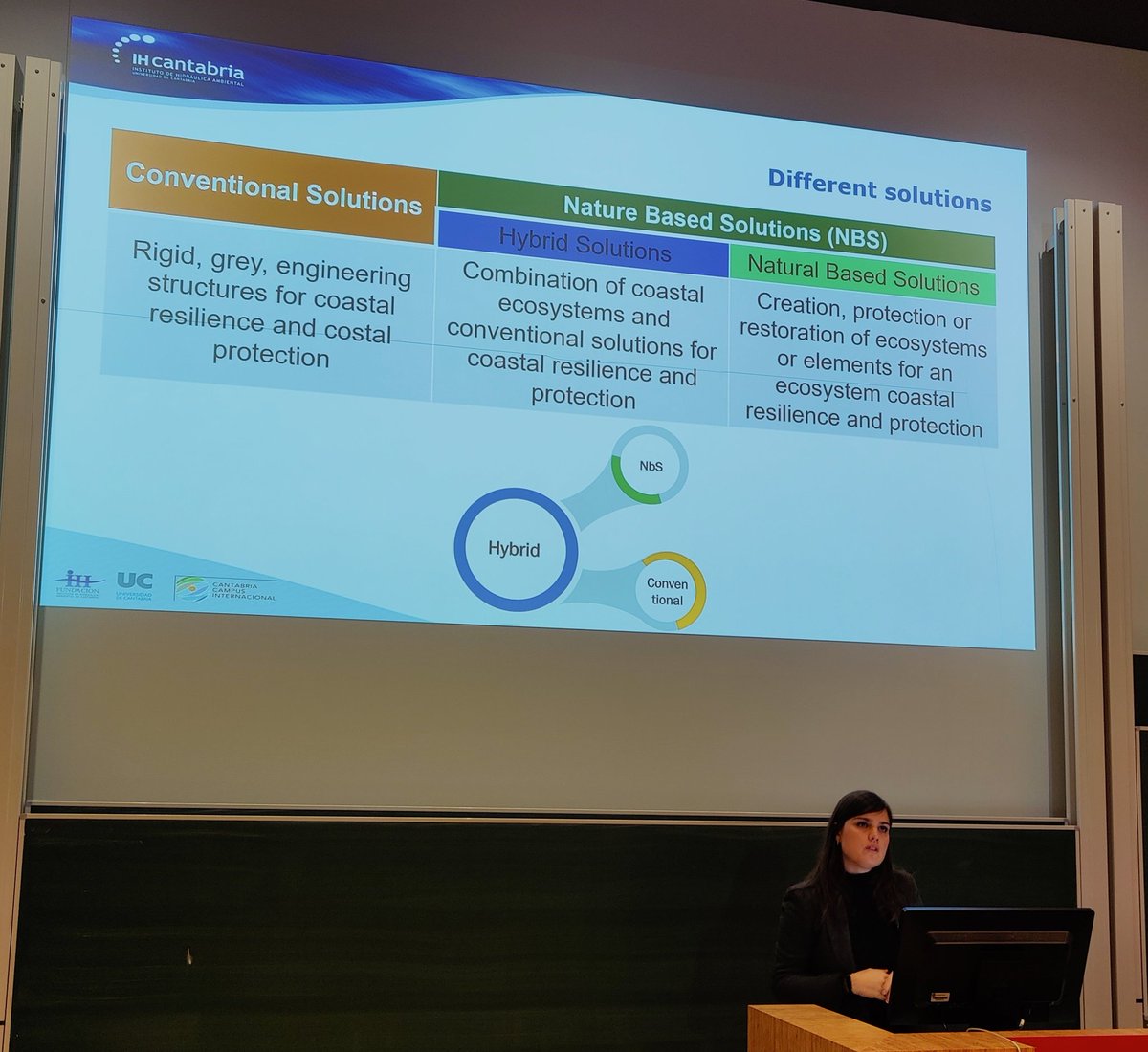NOTICIAS
The IHCantabria researcher María Maza gives the opening seminar of the 8th edition of the Brunings Lecture at the University of Utrecht

The researcher of the Climate Risks, Adaptation and Resilience group of IHCantabria and professor at the University of Cantabria, María E. Maza Fernández gave this Tuesday, January 24, the seminar of the 8th edition of the Brunings Lecture at the University of Utrecht invited by the professor of biogeomorphology of rivers and estuaries Maarten Kleinhans.
The Brunings Lecture is an annual event that brings together academics, consultants and government institutions, mainly from the Netherlands, but also European and international, through the participation of their delegations.
This conference represents an excellent opportunity to unite science, management and governance and thus put into perspective the current state of nature-based solutions and identify the most relevant aspects on which to continue working to manage our coasts better.
The event has been entitled “Nature and our solutions” and Dr Maza’s seminar has focused on analyzing and reflecting on the point at which science is to design and effectively apply nature-based solutions for coastal protection and adaptation to climate change.
Regarding the growing number of initiatives that include nature among the solutions to achieve coastal disaster risk reduction and adaptation to climate change, Maza has raised the following questions: can we assess coastal resilience by including nature-based solutions? ? Can we draw parallels between conventional engineering and the design, implementation and monitoring of these solutions? And do we have the necessary tools to design this type of solution?
Although there are conceptual guides and a series of tools to analyze the performance of nature-based solutions in coastal protection, it is still necessary to have integrated recommendations for design, implementation and monitoring, which allow including this type of solution in the portfolio of solutions for coastal protection. In addition, it is crucial to have predictive tools to evaluate these solutions’ performance at different spatial and temporal scales. Dr Maza’s research focuses mainly on this last aspect since it is critical to carrying out the design of these solutions and, subsequently, their implementation. Specifically, her research includes studying fundamental physical processes in the flow-ecosystem interaction and creating new numerical tools that promote the use of nature-based solutions as coastal protection measures.
In addition, the event was attended by Professor Bregje van Wesenbeeck from the Technical University of Delft and the scientific director of Deltares, the Dutch research institute for water management. Wesenbeeck gave a second complementary talk, with which a discussion forum was later opened for all attendees.



